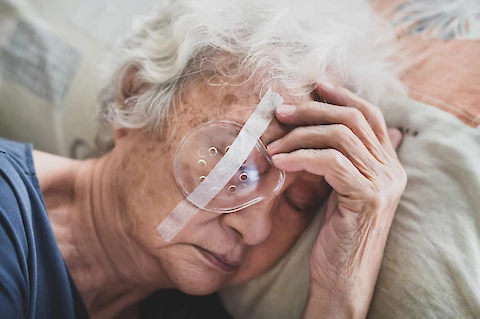
If you're a caregiver of a senior family member about to undergo or who recently had cataract surgery, you’ll want to know as much as possible about the procedure and the care required after the operation. You want to be prepared for potential cataract surgery complications, what signs to look for, and what to do about it. Arming yourself with knowledge will ensure your senior loved one receives the best possible care after their cataract operation.
What Happens During the Cataract Procedure?
Cataract surgery involves the surgeon removing the cloudy lens from the patient's eye and replacing it with an artificial lens or IOL. The surgeon numbs the eye and uses very tiny tools to ensure minimal discomfort to the patient.
Usually, the patient will rest in a waiting area after the procedure. Once a medical professional ensures no immediate problems exist, the patient usually goes home the same day.
Understanding Cataract Surgery Complications
Cataract surgery is generally safe. However, like any surgery, it's not entirely devoid of risk. Some common complications may include Posterior Capsule Opacification (PCO), eye inflammation, increased eye pressure, retinal detachment, infection, and light sensitivity. Most are rare, but awareness will help you better support your loved one after the procedure.
Recognizing the Signs
The specific symptoms vary depending on the complication, but they generally include the following:
- Persistent pain in the eye
- A noticeable decrease in vision
- Redness, swelling, unusual discharge from the eye,
- Sensitivity to light
Watching for these signs is essential, especially in the weeks following the surgery.
Preventing Complications
Preventing complications comes down to following the doctor's instructions closely. Ensure your loved one takes the prescribed medication and refrains from strenuous activities that may strain the eyes. Additionally, wearing the correct eye protection will help prevent accidental injury. Lastly, ensure your senior family member schedules regular follow-ups with the healthcare provider to monitor healing and reduce the risk of complications.
Regular follow-ups represent your best defensive tactic. These visits allow your healthcare provider to monitor your loved one's recovery closely, make necessary adjustments to the treatment plan, and detect complications early.
What to Do When You Suspect Complications
If you suspect a complication, make sure to contact the healthcare provider immediately. Describe the symptoms as clearly as possible. Remember, it's crucial not to self-medicate or ignore any signs, as they could indicate a severe problem that needs immediate attention.
Please understand that this article doesn't replace professional medical consultation. It's always best to seek advice from healthcare providers for concerns or questions about your loved one's recovery after cataract surgery.
Senior Helpers Greenwood-Aiken, SC, Can Help
Understanding potential cataract surgery complications will help you prepare and act appropriately as a caregiver. Remember, the goal is not to alarm you but to empower you. After all, a complication caught early is often easier to manage.
For those in Greenwood, North Augusta, Chapin, Newberry, and Leesville, please don't hesitate to contact us at Senior Helpers Greenwood-Aiken, SC. We provide support, advice, and care to ensure your loved one receives the best care possible. We would love to discuss our services for seniors and their caregivers with you, like Wellness Watch and Personal Care.